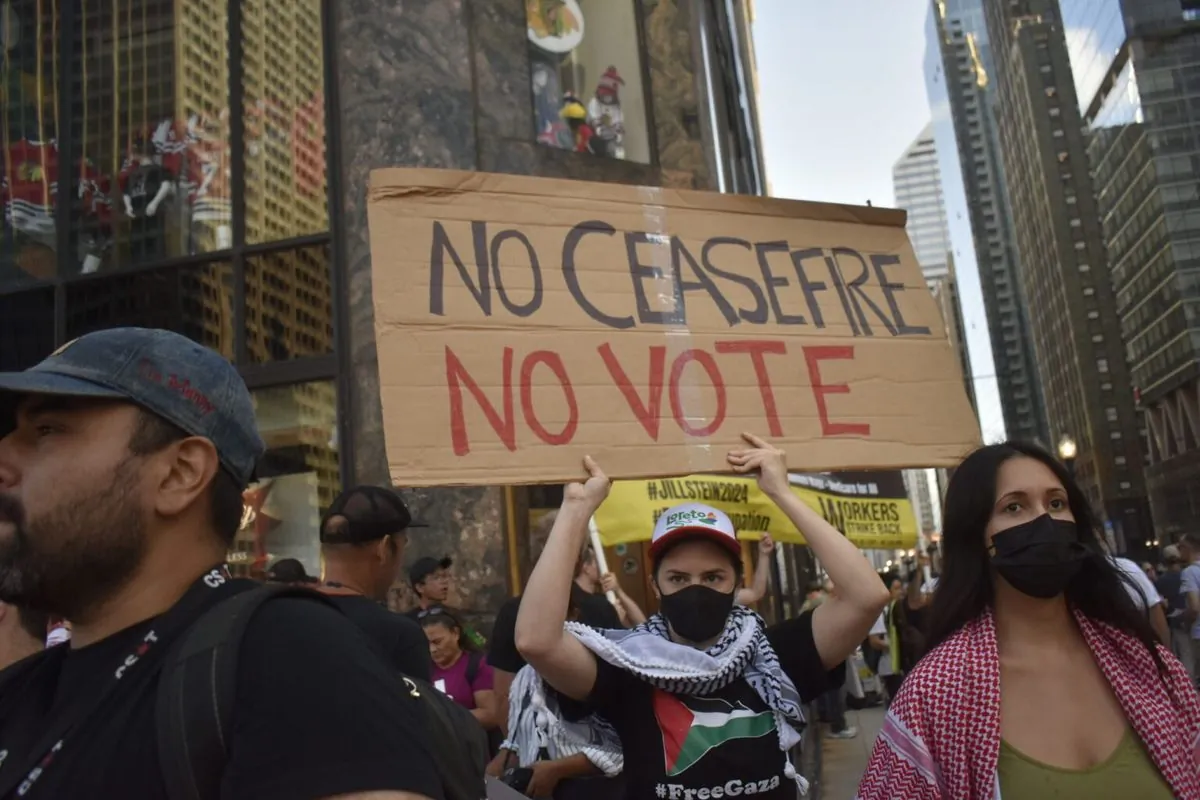The Democratic National Convention, concluding today in Chicago, has largely avoided addressing the ongoing conflict in Gaza, sparking discontent among pro-Palestinian delegates and raising concerns about potential electoral consequences for Kamala Harris and the Democratic Party.
Harris, the presumptive Democratic presidential nominee, is expected to call for an urgent end to the war and the release of Israeli hostages in her acceptance speech today. However, sources familiar with her remarks indicate she will not address U.S. arms sales to Israel, a key point of contention for many activists.
The Gaza conflict, which began 10 months and 15 days ago, has resulted in significant casualties on both sides. Muslim delegates and their allies had pushed for a prime-time speaking slot to address the issue, but their request was denied by convention organizers in consultation with the Harris campaign.
Pro-Palestinian advocates have vowed to continue pressuring Harris to reconsider the U.S. stance on arms sales to Israel. Party insiders are concerned that the Gaza war could cost Harris crucial votes in battleground states with significant Muslim and Arab American populations, such as Michigan.
"At least give us something symbolic. We wanted to support Harris but needed something tangible to sway skeptical voters."
The Uncommitted National Movement, which mobilized nearly 750,000 voters to withhold their support for Joe Biden during the primaries, staged an overnight protest outside the convention center. They were joined by other groups, including the United Auto Workers union and the Movement for Black Lives, in solidarity with the demonstrators.
The issue has drawn thousands of protesters to marches throughout the week, with police reporting dozens of arrests. The decision not to include a Palestinian speaker has led to criticism from various quarters, including the Movement for Black Lives, which stated, "It is unconscionable to silence Palestinian voices as they face U.S.-funded massacre, starvation and ethnic cleansing."
Only a handful of references to the war have been made from the DNC stage, with Biden, Bernie Sanders, Raphael Warnock, and Alexandria Ocasio-Cortez among those who briefly addressed the Gaza situation.
Some Harris campaign donors have expressed concern that without a clear stance on ending the war and protecting civilians, campus protests could intensify when universities resume classes in the coming days. The University of Michigan, one of the leading public research universities in the U.S., has already seen demonstrations on its Ann Arbor campus.
As the Democratic Party attempts to build a "big tent" coalition to defeat former President Donald Trump, the exclusion of Palestinian voices from the convention has left many feeling marginalized. Tariq Habash, who resigned from his senior position at the Department of Education in January to protest the U.S. role in the war, warned that this erasure "will not be forgotten."
The ongoing controversy highlights the challenges facing the Democratic Party as it navigates complex foreign policy issues while trying to maintain unity and appeal to a diverse electorate in the upcoming presidential election.
